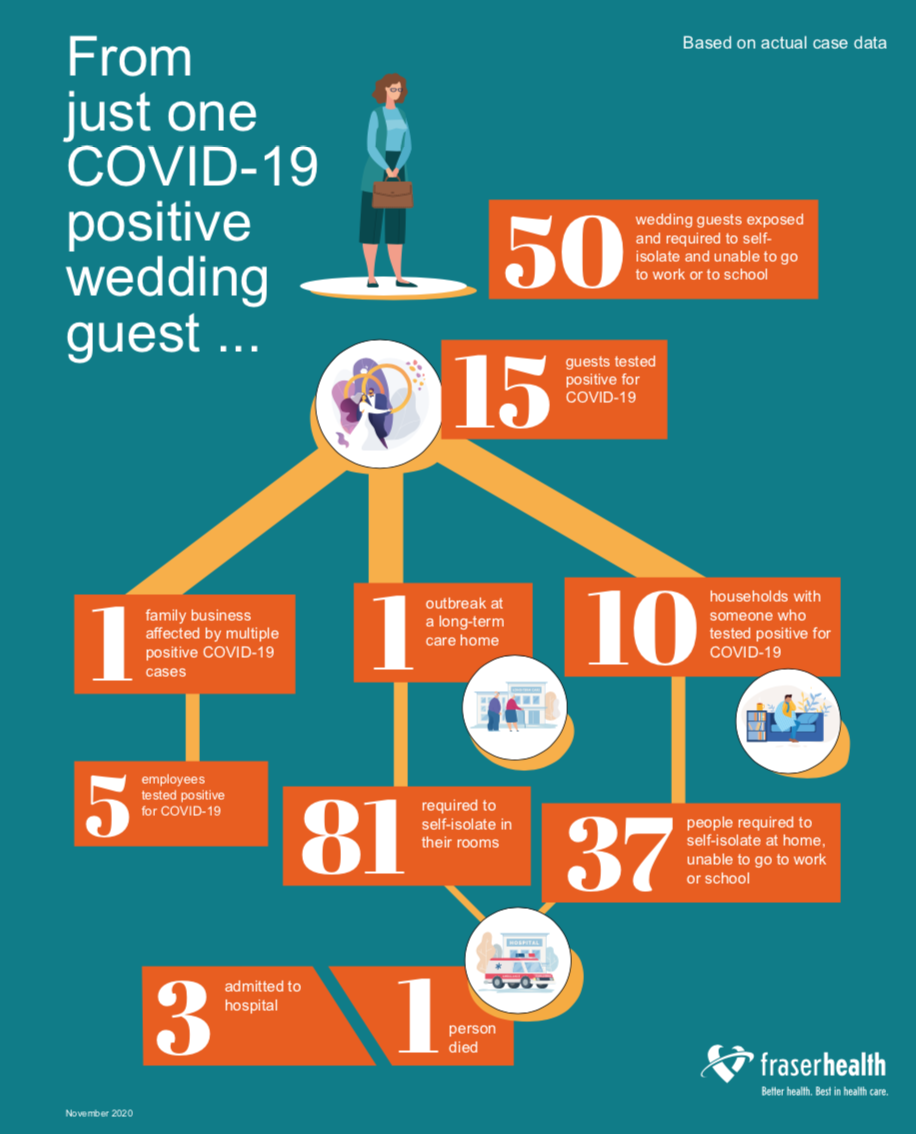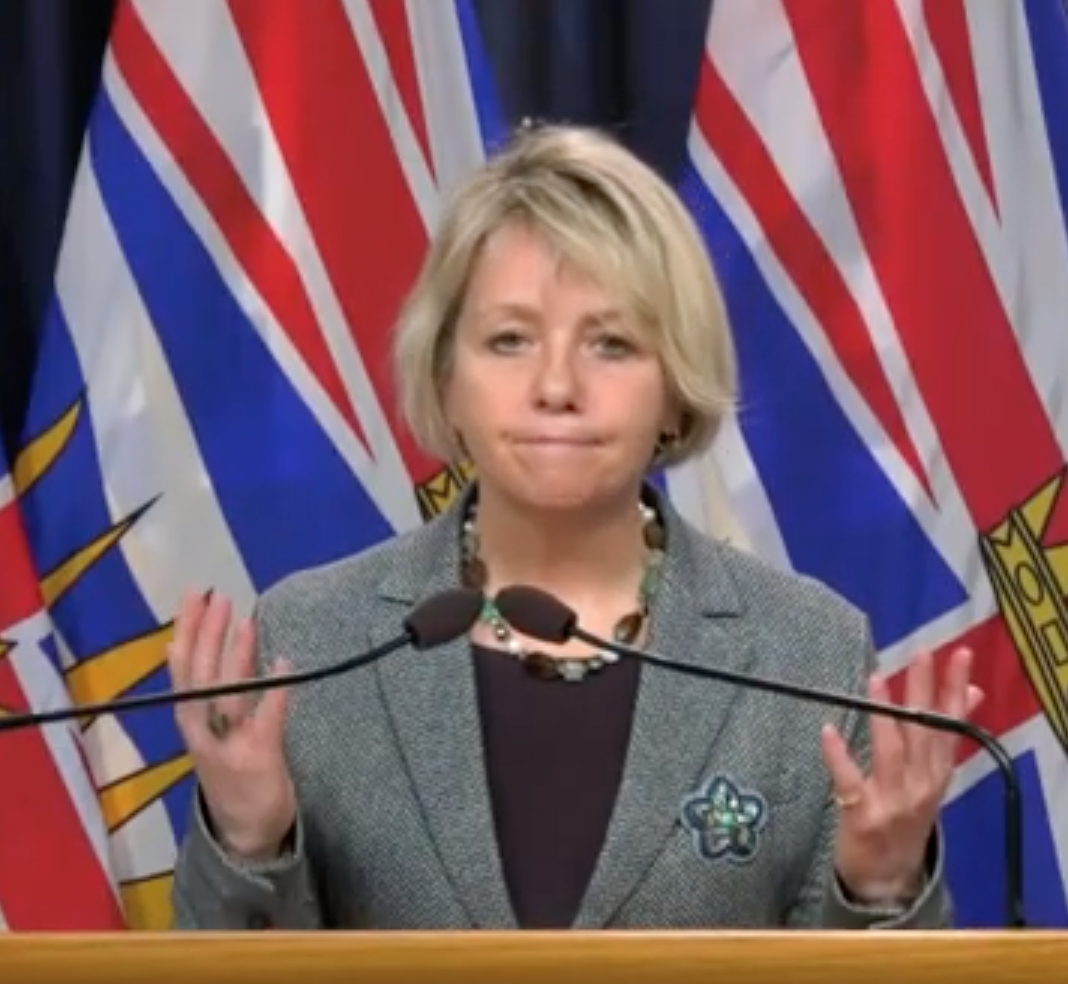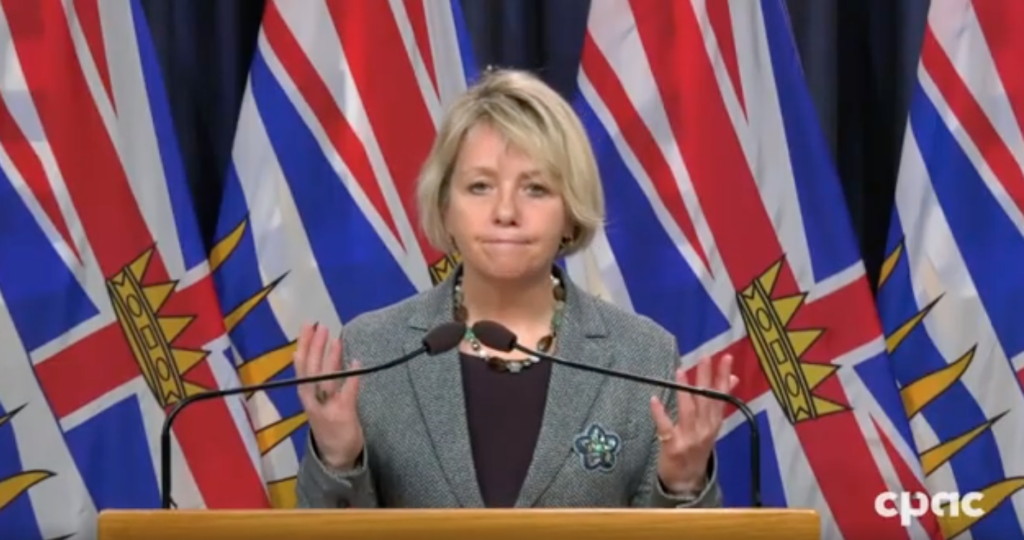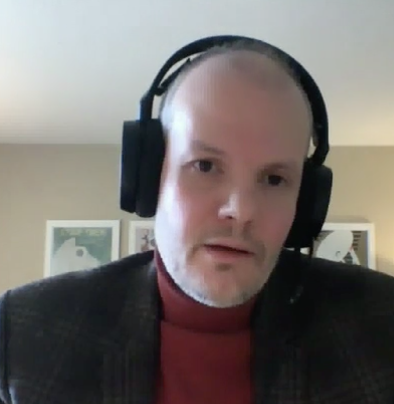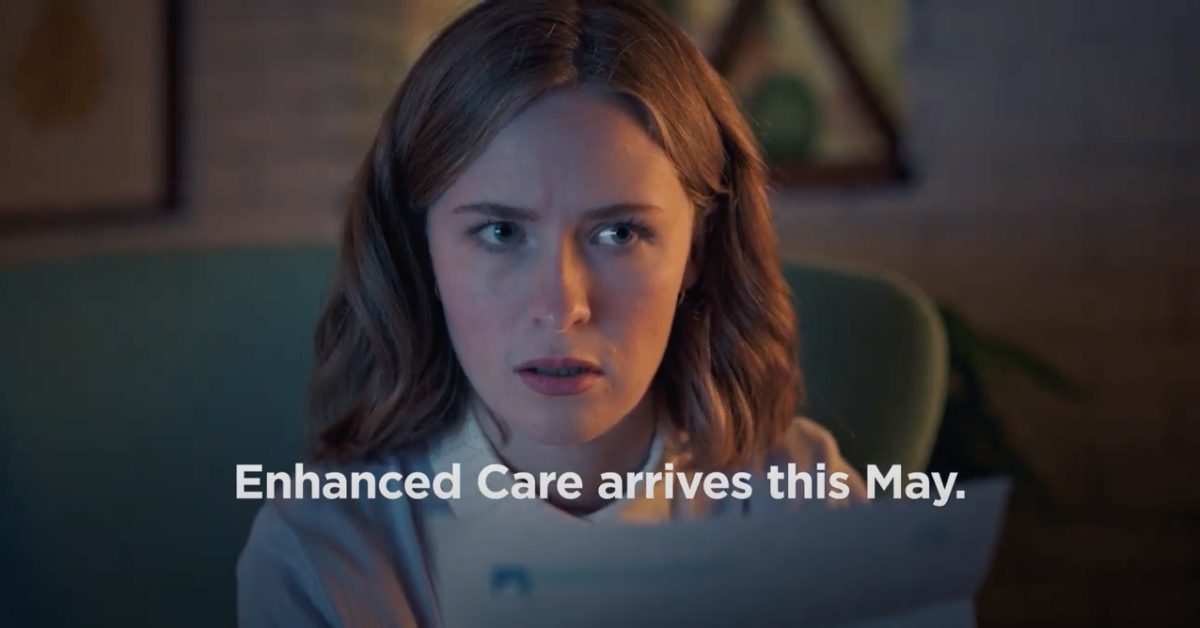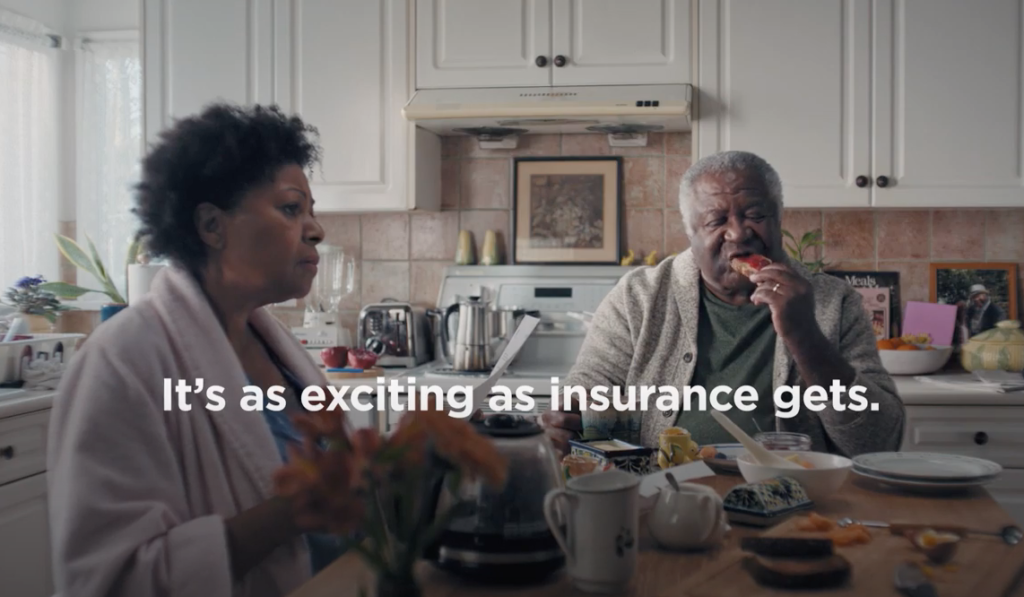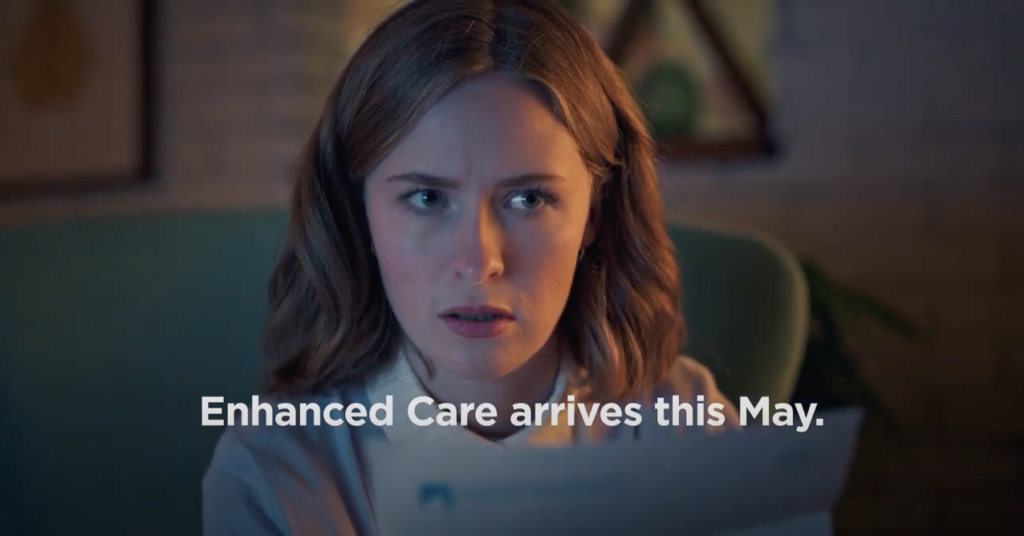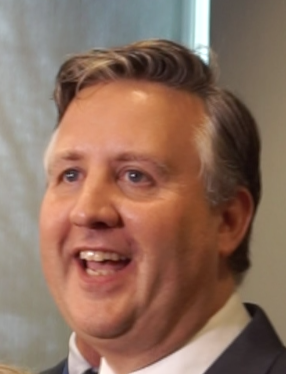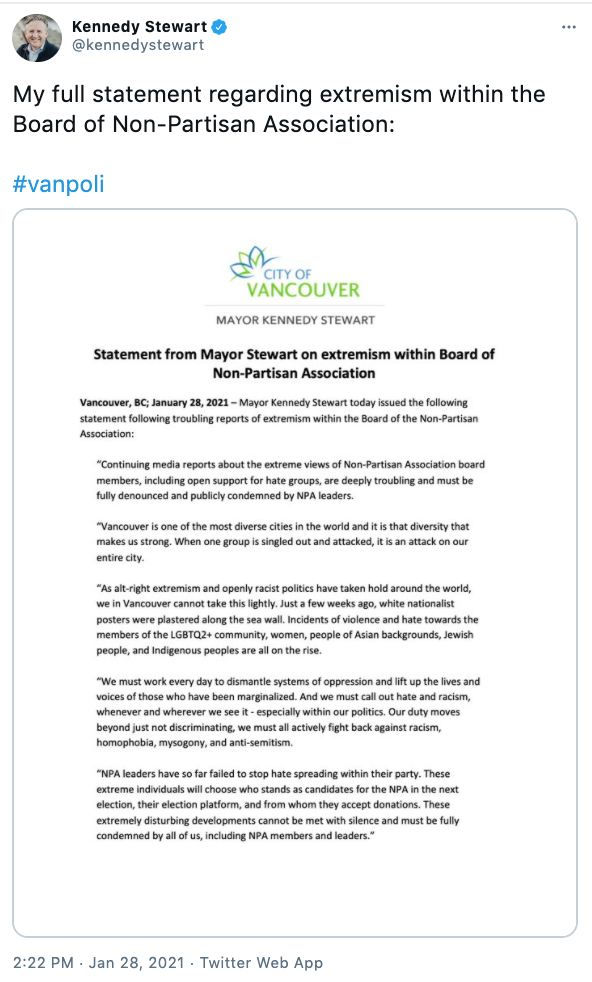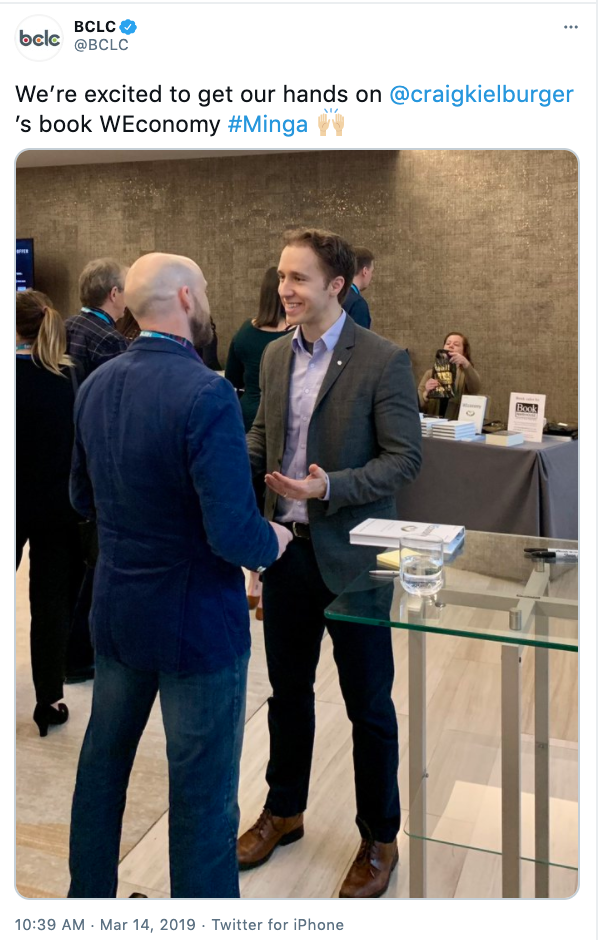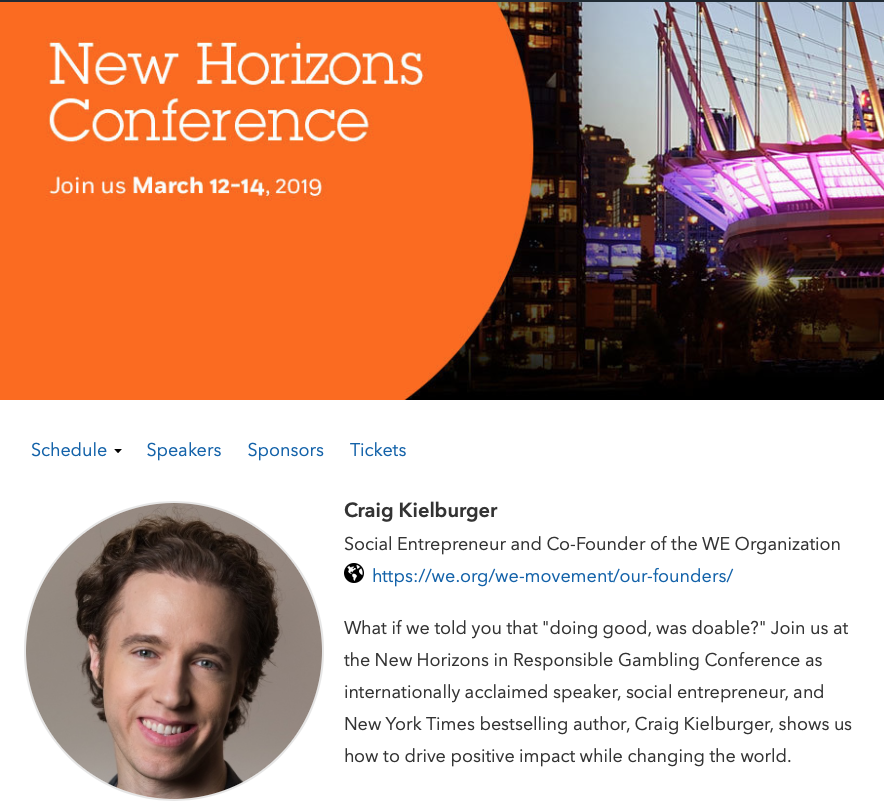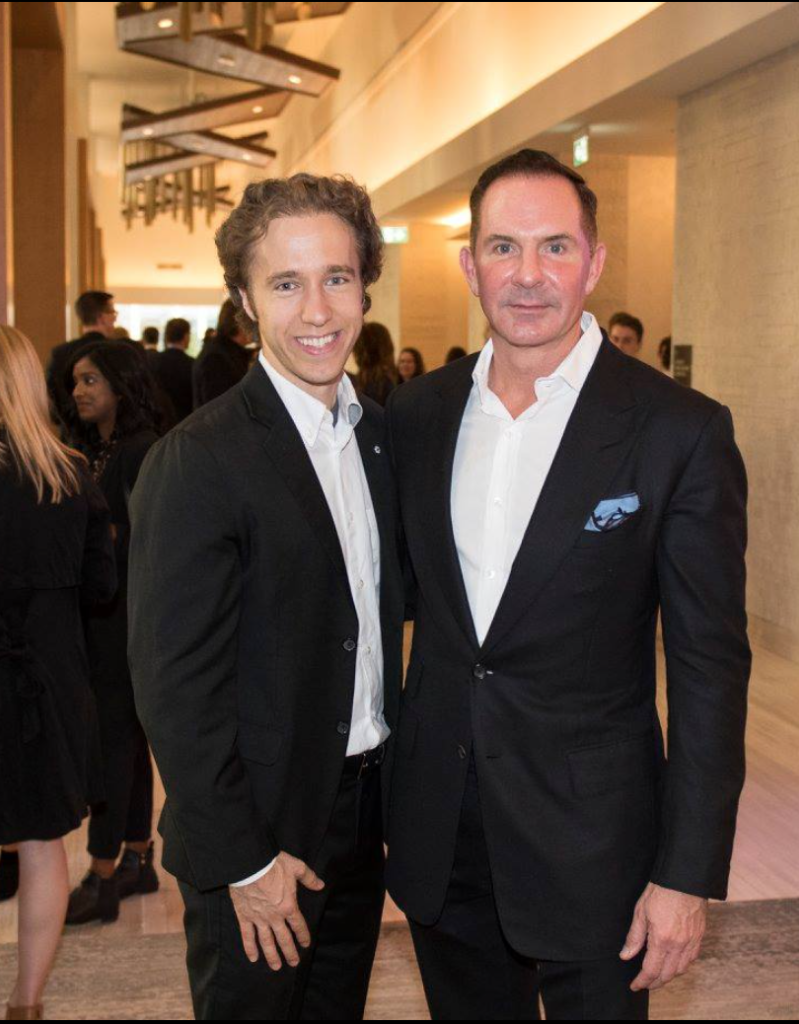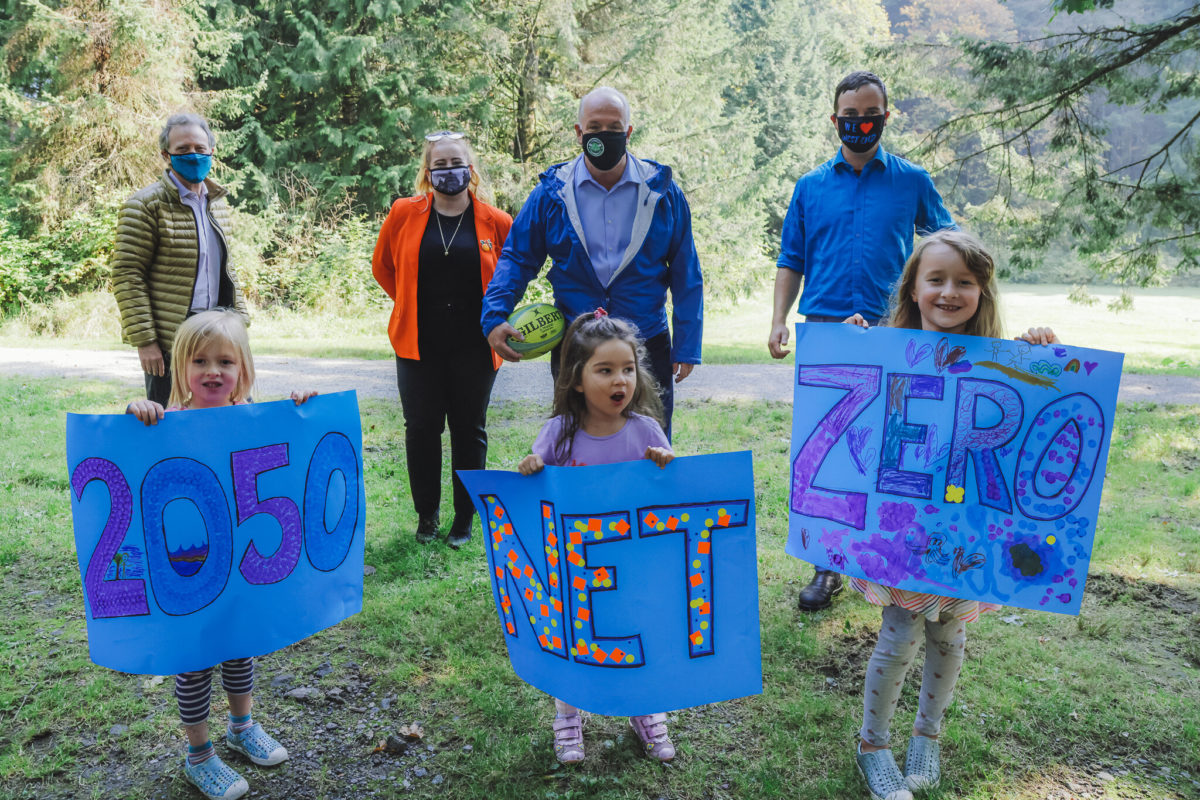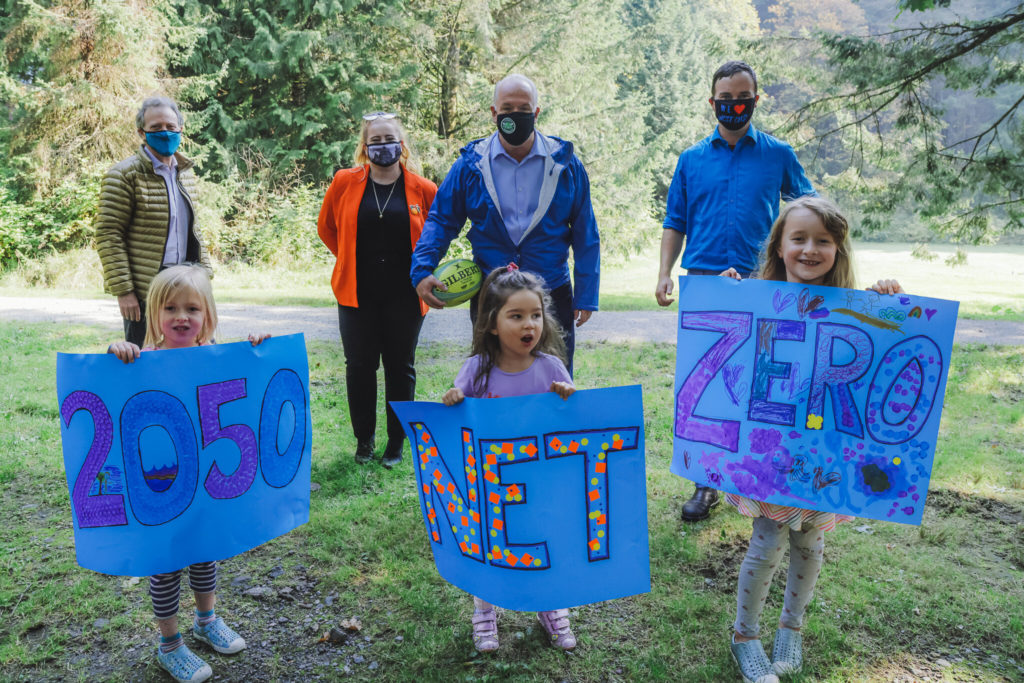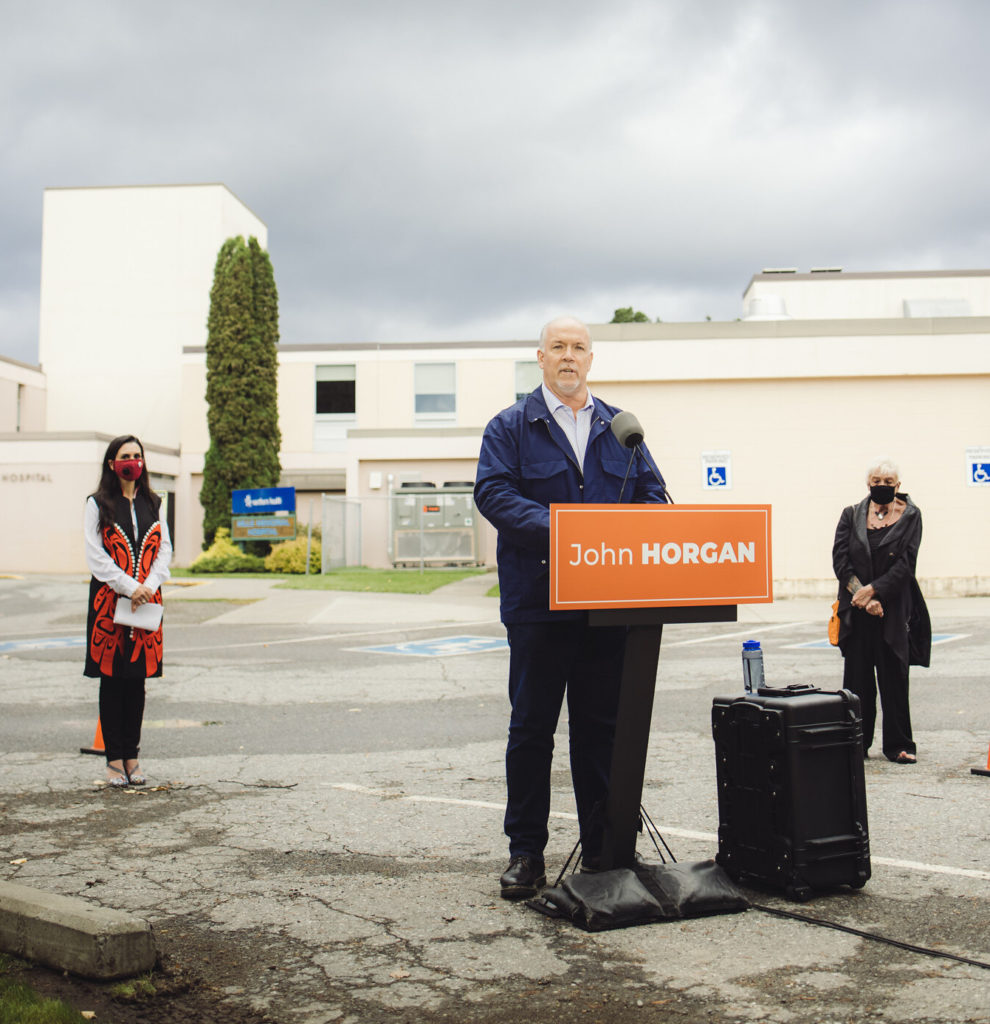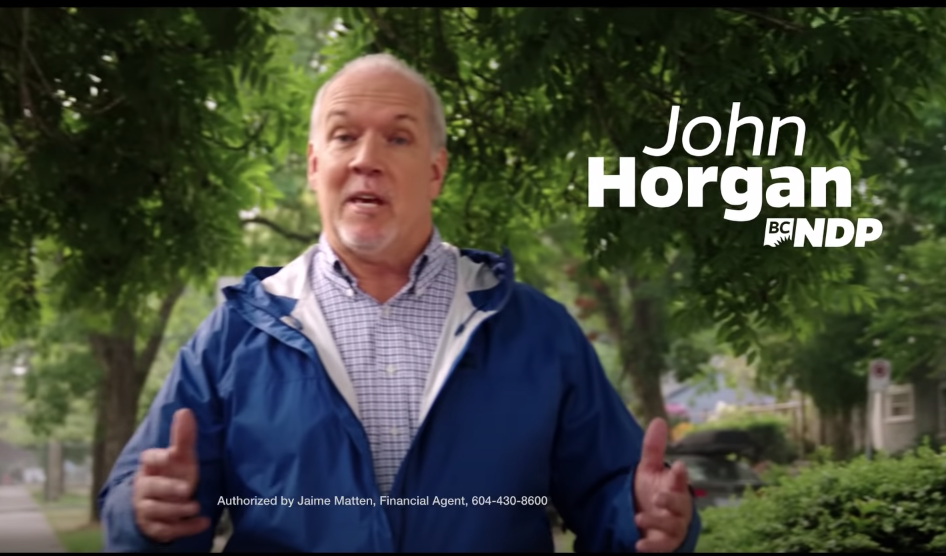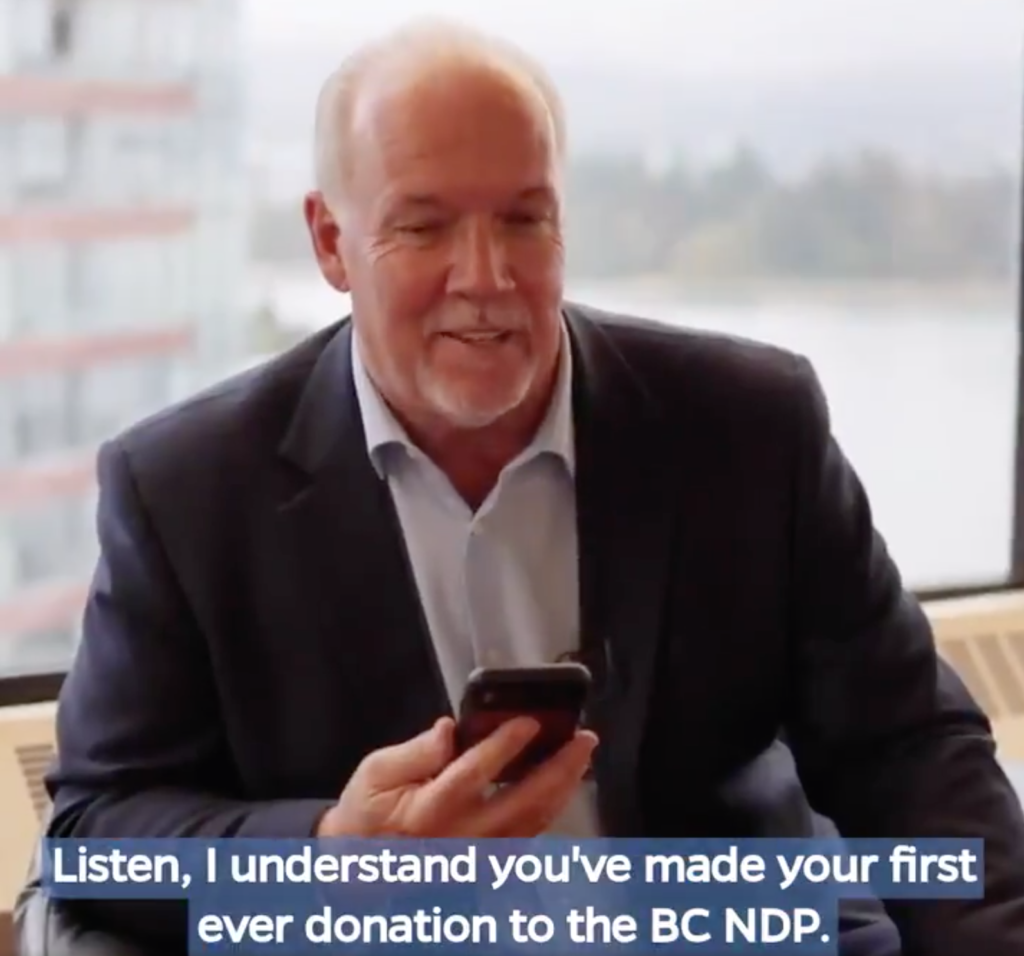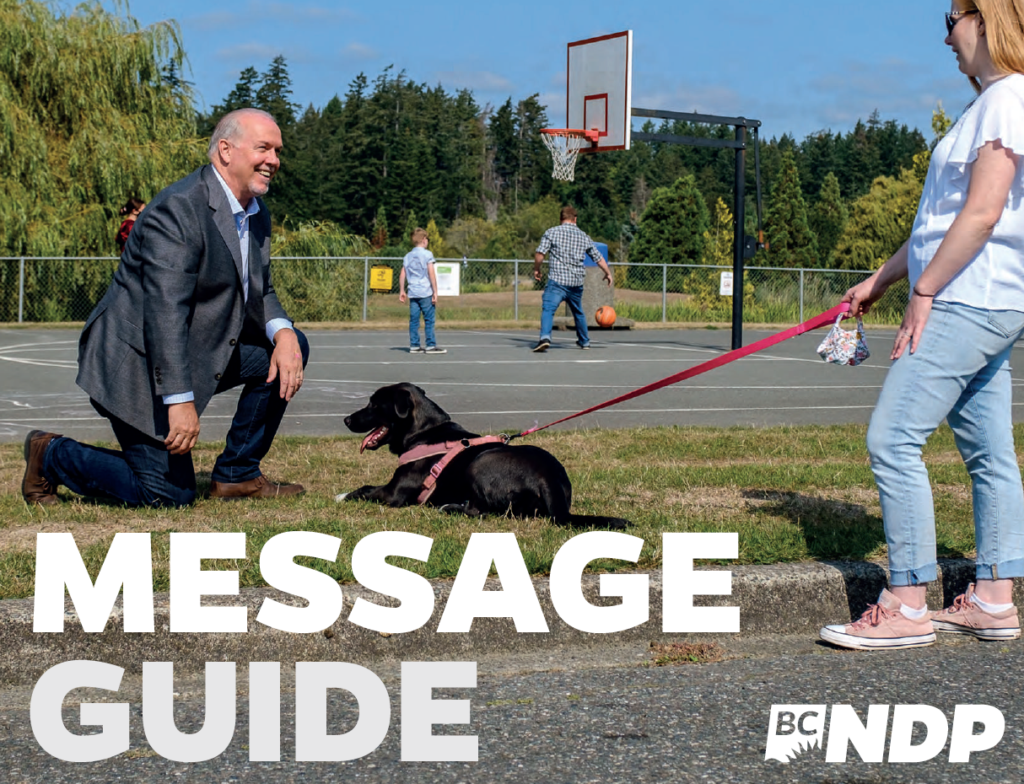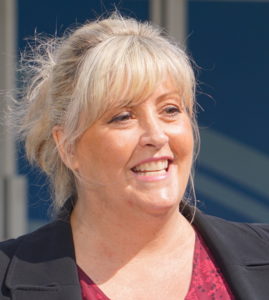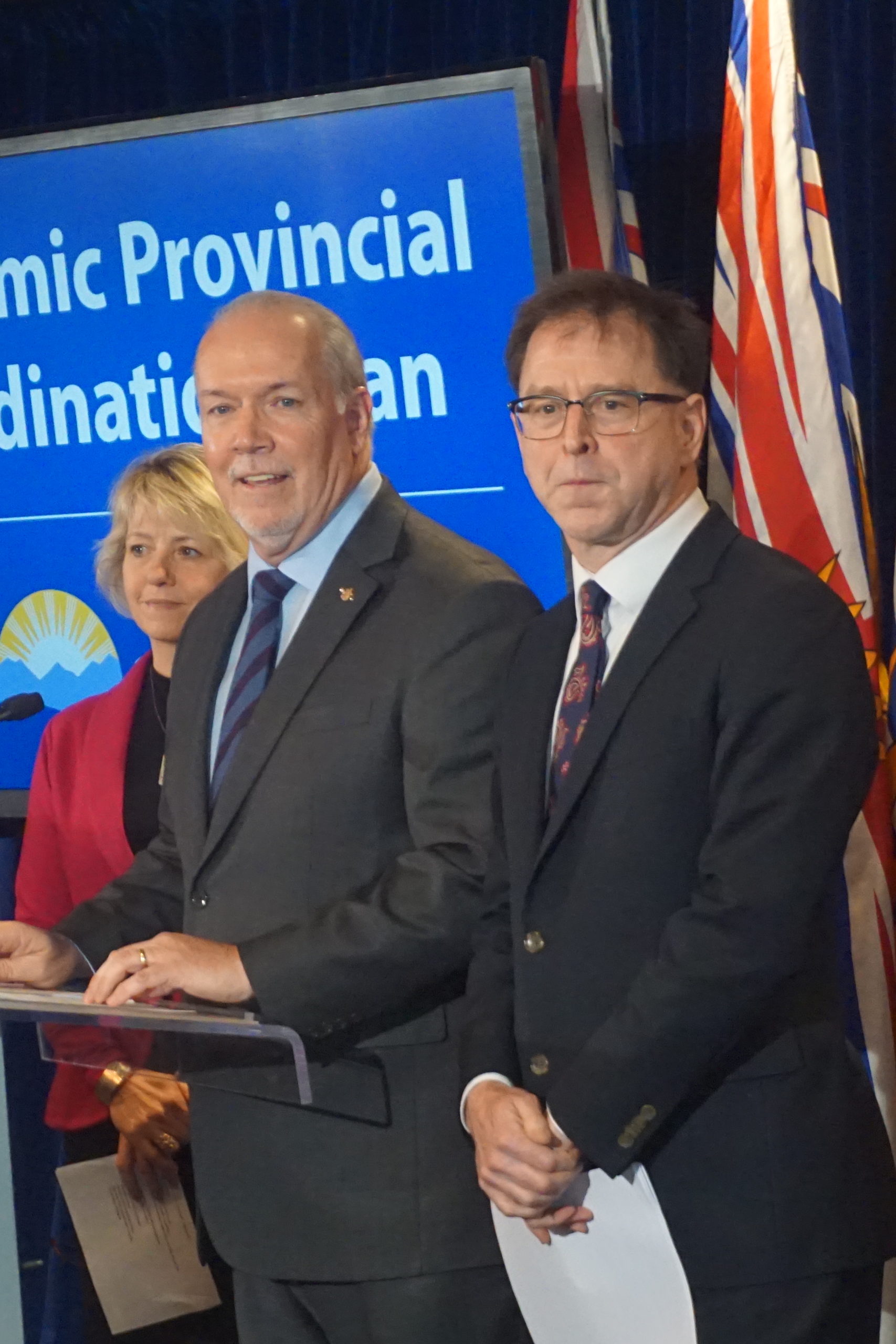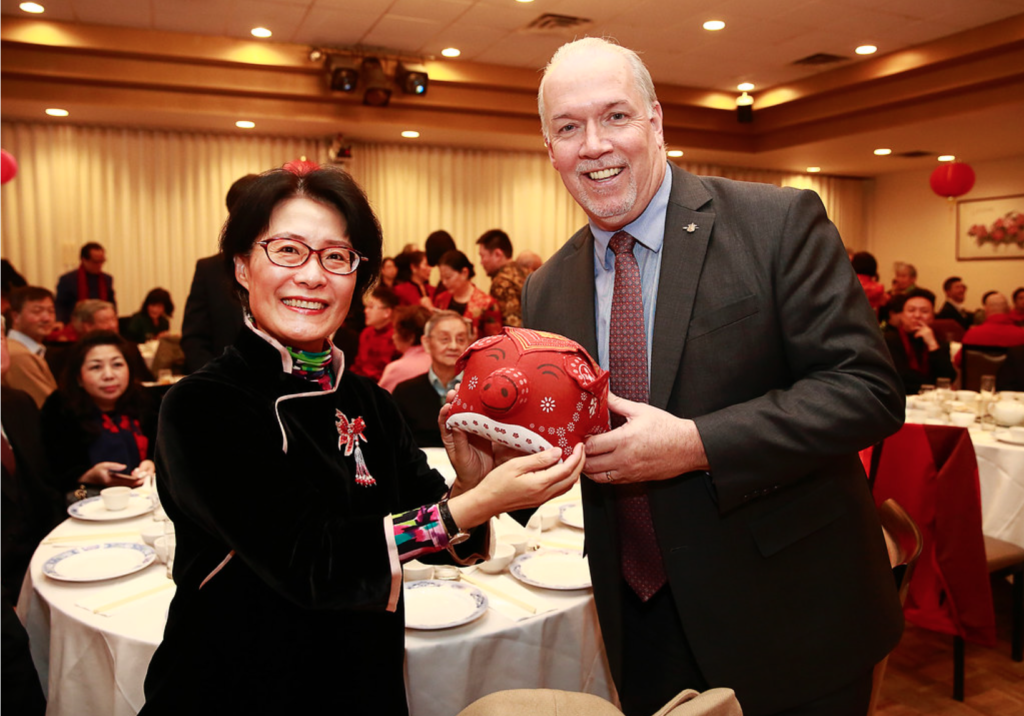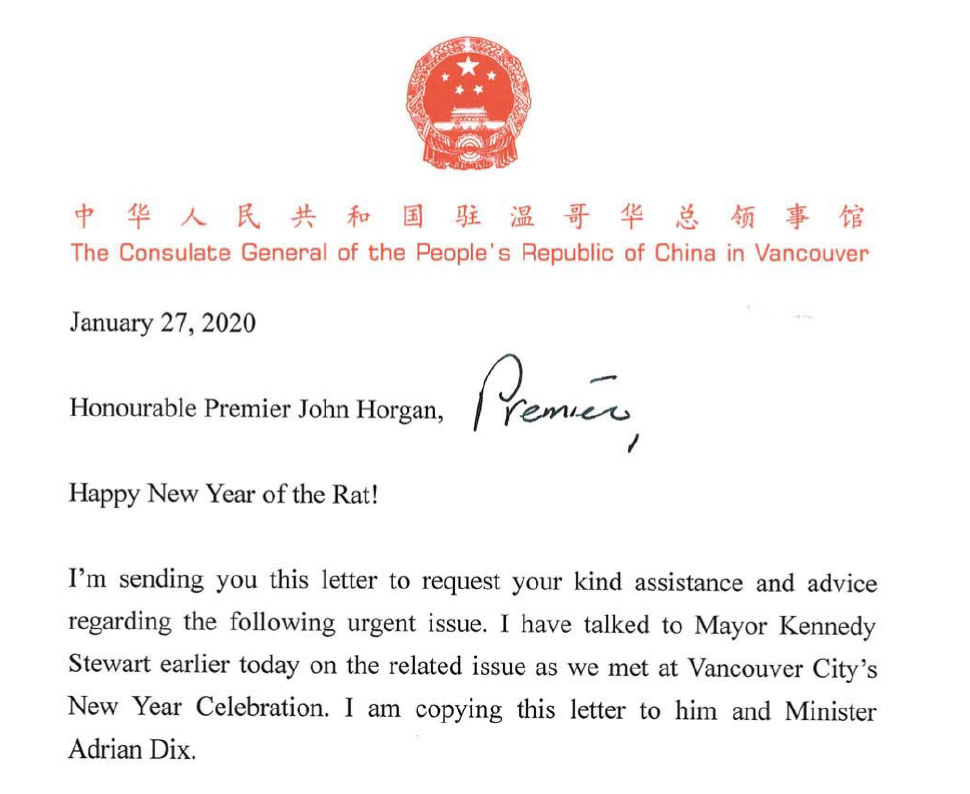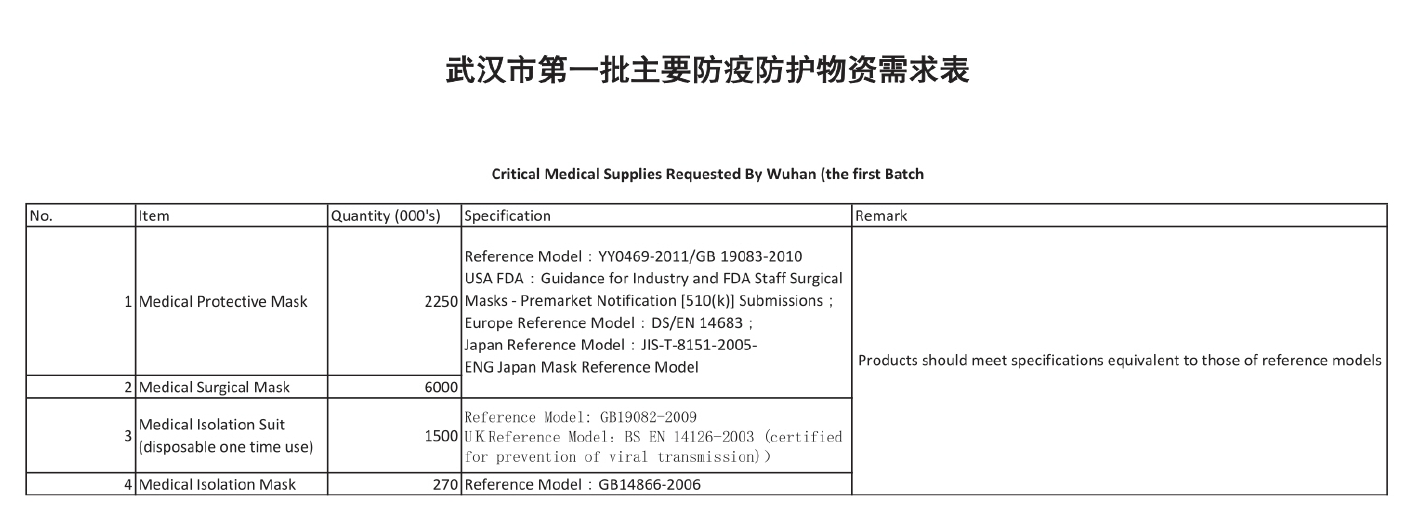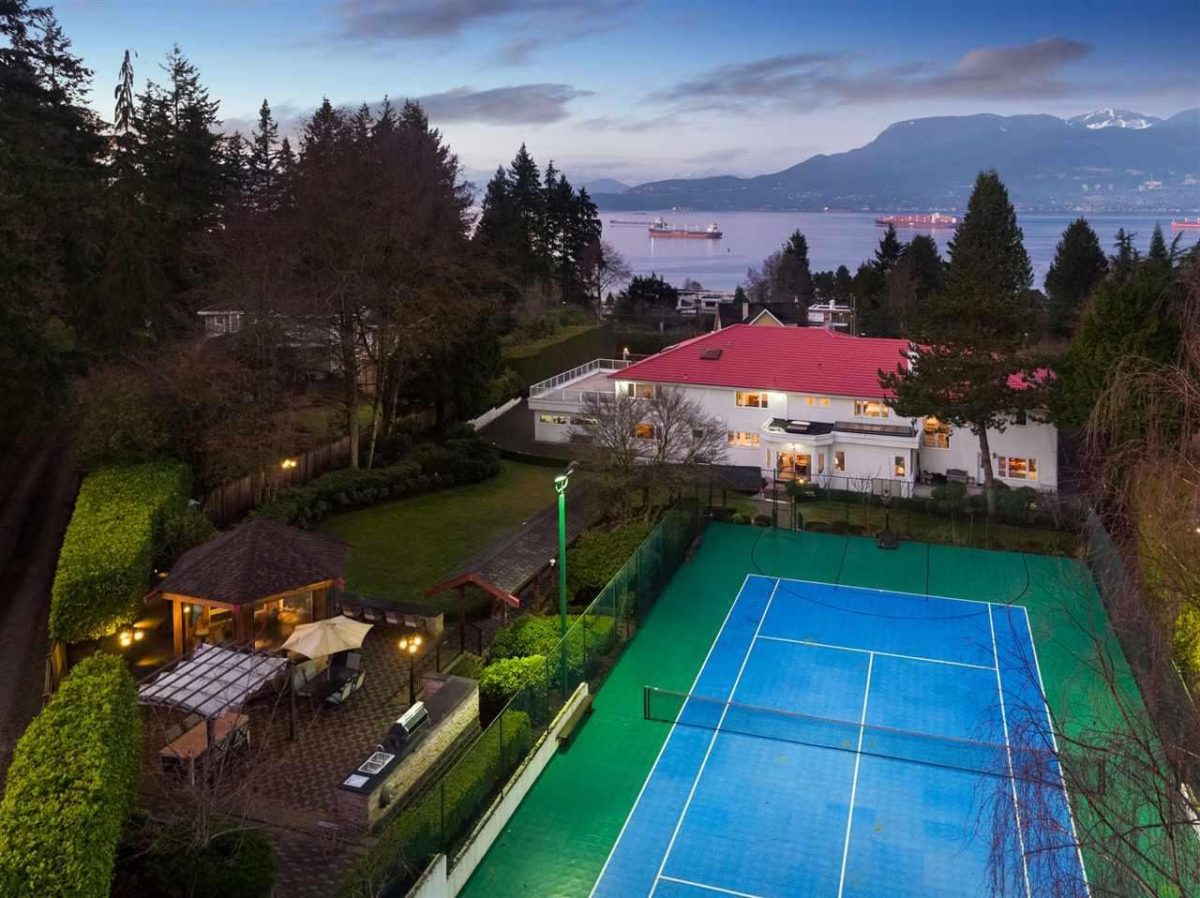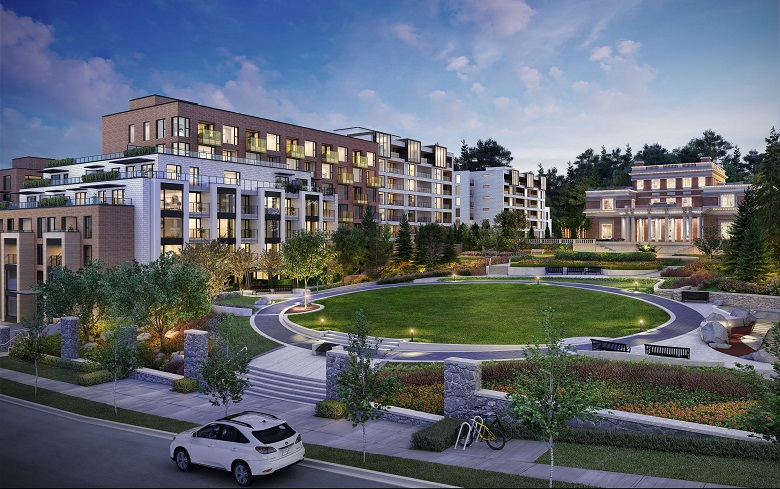COVID Exclusive: Inexact science behind the spin of Fraser Health contact tracing infographics
Bob Mackin
The challenge: how to illustrate the danger of ignoring public health orders in the face of the fast-spreading coronavirus pandemic.
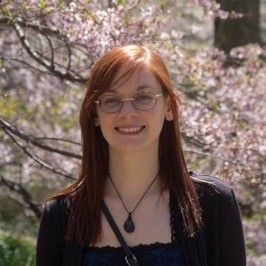
Field epidemiologist Laurence Campeau (LinkedIn)
That is what Fraser Health Authority set out to tackle in November, as Surrey became British Columbia’s epicentre of infection.
Under the freedom of information law, theBreaker.news sought the anonymized contact tracing reports from Fraser Health, to verify the claims made in the infographics.
Records disclosed show that there was inexact science behind the spin.
Laurence Campeau, a field epidemiologist with the Public Health Agency of Canada since September 2020, provided the contact tracing background to the communications department. Though, not all the numbers are visible in the heavily censored email that was provided to theBreaker.news. (Scroll down to see the email.)
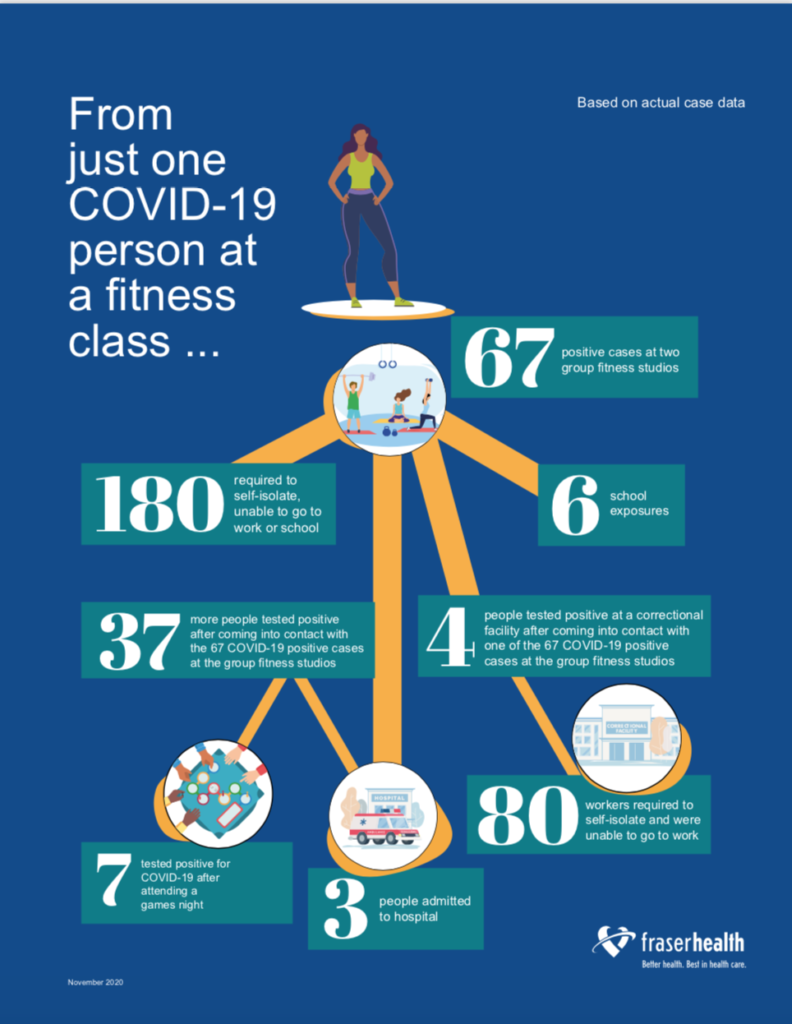
(Fraser Health)
For the wedding infographic, part of the celebration was hosted at a household. A person “still attended the wedding… despite having developed symptoms. Note that the exposure source for this case is unknown.”
“Something to note is that according to case interviews, social distancing was maintained at the (censored),” Campeau wrote. “Everyone was masked at all times and maintained physical distancing, the tables were separated by 2 m and seated maximum 4 people each. The event was catered but food was served by caterers only. A shared bathroom was used by all, but good cleaning procedures were in place. Case’s (censored) reports that (censored) called Services Canada and obtained all COVID guidelines before hosting this event(s) to ensure all safety measures were in place.”
Another infographic featured a fitness studio scenario.
“Client who goes to (censored) fitness on a daily basis starts showing symptoms.”
The notes mention “4 classes on (censored) and 4 more on (censored).”
The studio was closed to prevent further transmission.
There were 67 primary and 37 secondary cases. What the infographic does not show is 129 household contacts identified for both primary and secondary cases. “This could include duplicate if someone was mentioned by two different people,” Campeau wrote.
The infographic mentions a “games night” from which seven people tested positive. “No physical distancing or masks,” Campeau wrote.
The infographic mentions four people tested positive at a correctional facility. Campeau wrote that one of the primary cases from the fitness studio worked “there,” meaning the correctional facility.
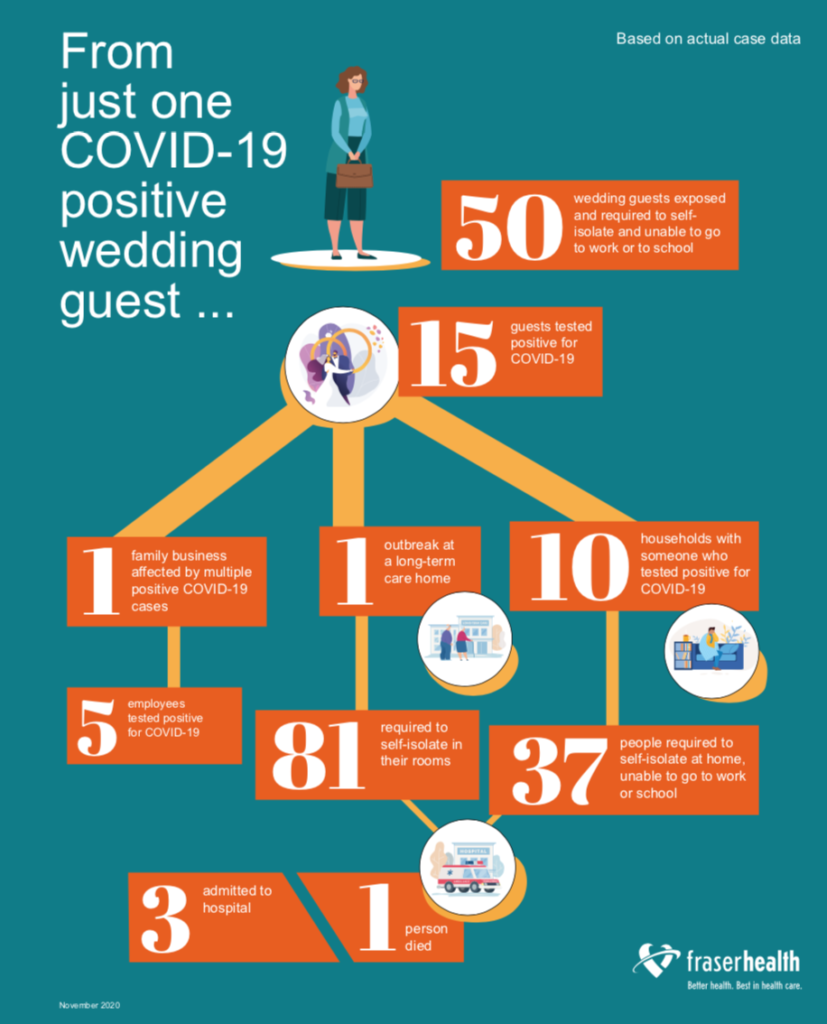
(Fraser Health)
“Exact number unknown; I know (censored) mentioned 90 but I will try to confirm this.” (The infographic used the number 80 to refer to the total at the correctional facility.)
Campeau’s email referred to exposure at “various schools.” The infographic said there were “six school exposures.”
“Confirmed cases worked in many, many different places; I haven’t been able to look into each one to see which led to potential exposures event.”
On Dec. 4, Fraser Health became the first regional health authority to offer a do it yourself contact tracing form on its website.
As of Dec. 17, the B.C. government had hired 1,235 contact tracers (including 579 in Fraser Health), more than double the number in the summer. B.C. also seconded staff from Statistics Canada and the Red Cross to work at the hub in the Vancouver Convention Centre.
However, there were numerous reports of contact tracers hitting dead ends, due to unreturned phone calls, hang-ups and evasive persons exposed to the virus. Contact tracing relies on the honesty, accuracy and memory of where a person was, when and with whom.
The B.C. government opted-out of the federal government’s COVID Alert exposure notification app. B.C. officials have never fully explained why, but indicated they were considering adopting Alberta’s version.
Support theBreaker.news for as low as $2 a month on Patreon. Find out how. Click here.
Fraser Health Contact Tracing FOI by Bob Mackin on Scribd
Bob Mackin The challenge: how to illustrate






